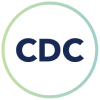Useful PREVNAR 20® resources
Invasive pneumococcal disease (IPD) can have potentially serious effects in babies. Learn what you can do to help protect your baby.
Conversation Starter Guide
Your baby’s doctor is there to help you, but you know your baby best. The doctor wants to hear your questions and thoughts about IPD, so you can continue to be your baby’s best supporter.

Create a personalized discussion guide in 3 easy steps

Personalize your Conversation Starter Guide
Questions about invasive pneumococcal disease (IPD)
Choose any or all of the questions below that you might want to ask your baby’s doctor, to help you better understand IPD.
- What is IPD?
- How does IPD spread?
- Is my baby protected against IPD?
- How can I help protect my baby against IPD?
- What are the risks if my baby gets the IPD vaccine? What are the risks if my baby does not get the IPD vaccine?
- When should I start vaccinating my baby against IPD?
- Do other parents have their babies vaccinated against IPD?
Personalize your Conversation Starter Guide
Questions about PREVNAR 20®
Choose any or all of the questions below that you might want to ask your baby’s doctor, to help you better understand your vaccine options.
- Are there any side effects I should know about?
- Would you recommend PREVNAR 20 for your child?
- How many doses of PREVNAR 20 are needed?
- Why does my baby need all 4 doses of PREVNAR 20?
- Can my baby get invasive pneumococcal disease (IPD) from PREVNAR 20 itself?
- Can PREVNAR 20 be given with other vaccines?
- What is the best age to get my baby vaccinated with PREVNAR 20?
- When should my baby return for the next dose, and can I schedule that visit today?
Save your Conversation Starter Guide
Your personalized guide is ready!
Click here for additional resources from trusted organizations
Frequently Asked Questions
Thanks to vaccines, widespread diseases, including smallpox, polio, diphtheria, measles, mumps, and rubella, are much less common now. But deadly diseases do still exist. Vaccines are one of the best ways to keep your baby healthy and help protect them from diseases.
Children under 2 years old are at a higher risk for getting certain vaccine-preventable diseases because their immune systems aren’t fully developed. For vaccines to continue to help protect children, children have to be vaccinated. As a caregiver, that’s where you come in.
Although you may not have heard of IPD, it can be potentially serious. The bacteria that cause IPD can spread through cough or direct contact when they are on toys or other objects. In serious cases, IPD can include meningitis, which may lead to brain damage or even death.
Babies and young children in the U.S. are still getting sick with IPD. The Centers for Disease Control and Prevention (CDC) has continued to recommend that babies get vaccinated against IPD—as they’ve recommended every year since vaccines for IPD were first available for babies.
Vaccination can help protect your baby. While IPD can be potentially serious in babies and young children, PREVNAR 20 can help reduce this risk.
The Centers for Disease Control and Prevention (CDC) recommends PREVNAR 20 for children 2-23 months. Learn more.
PREVNAR 20 should be given as a complete 4-dose series at 2, 4, 6, and 12-15 months old to help protect your baby against IPD caused by the 20 strains covered by the vaccine during your baby's period of greater risk. Skipping or delaying vaccines can put your baby at higher risk.
If you delay a dose, or if your baby receives fewer than 4 doses, your baby's immune system may have a lower response. This leaves your baby with less protection than if they had all 4 doses. Learn more.
Additional resources

The Centers for Disease Control and Prevention (CDC) is the U.S. national public health agency. You can find information on vaccines on their website.

Learn about a wide range of topics related to children’s health from the American Academy of Pediatrics (AAP).
